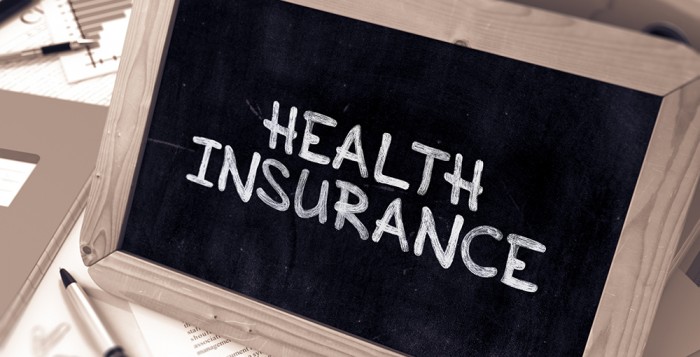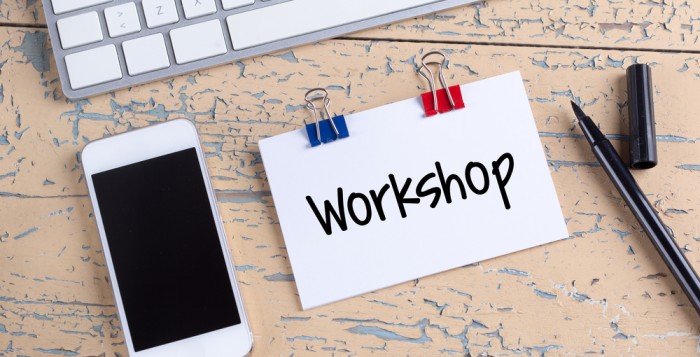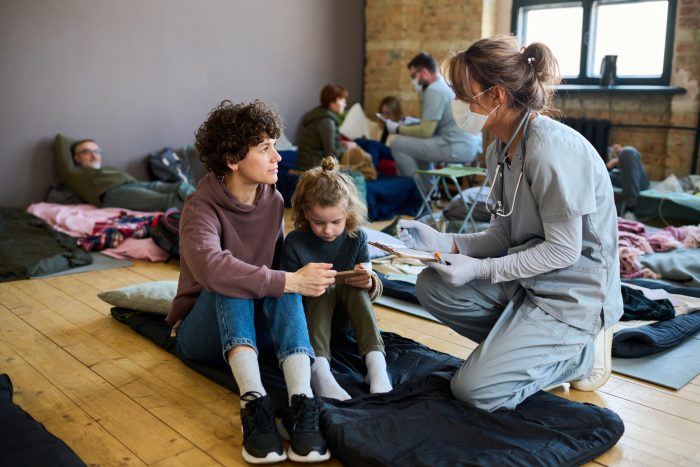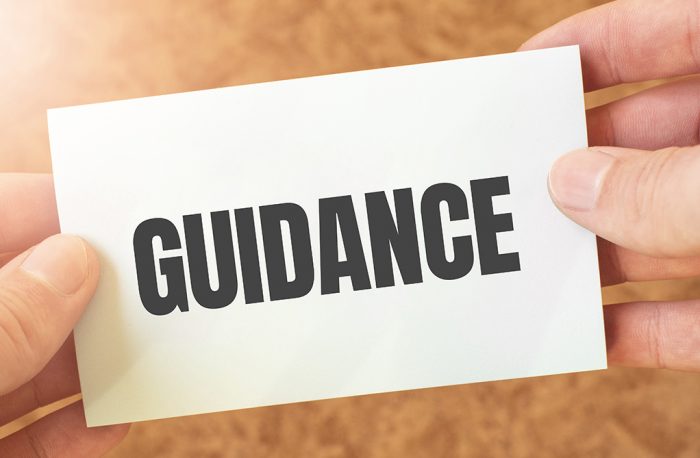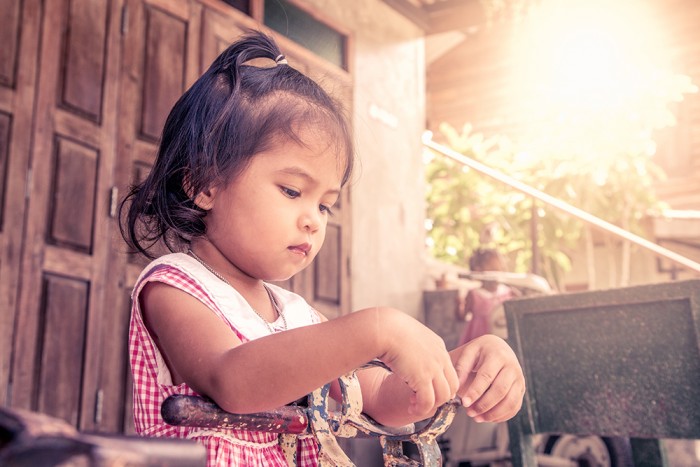Emma Sharp
WellKids by RCPA Member PA Health & Wellness to Join CHIP Network
The Pennsylvania Department of Human Services announced that WellKids by RCPA Member PA Health & Wellness will join the network of managed care organizations that offer health coverage through the Children’s Health Insurance Program (CHIP). This marks the first CHIP re-procurement since 2013, expanding the number of affordable health coverage options for children and teens in Pennsylvania. Effective January 2026, CHIP will operate a network of nine managed care organizations, providing comprehensive health coverage for eligible children across the state.
CHIP serves children and teenagers up to age 19 who are not eligible for Medicaid, offering health coverage for free or at a low cost based on family income and providing a variety of insurance plans to best meet a family’s needs. WellKids by PA Health & Wellness will provide a full range of services, including preventative, routine, urgent, and emergency care for physical and behavioral health, as well as coverage for dental, vision, and pharmacy services.
Contact RCPA Policy Associate Emma Sharp with any questions.
DHS Announces the Pediatric Capacity Building Institute Year 3
The Pennsylvania Department of Human Services (DHS) is excited to announce the Third Annual Pediatric Capacity Building Institute (PCBI). PCBI is a unique, interactive, educational experience which will occur monthly from March 2026 to October 2026. DHS strives to bring exceptional speakers who engage participants in a wide range of topics designed to better support children and families with complex needs across the Commonwealth. Some of the topics include infant mental health, leading through change, multisystemic planning, impact of trauma on children and families, vicarious trauma among professionals, expressive therapies and much more. PCBI also strives to incorporate the voices and experience of the children and families using these supports and services at every juncture. PCBI is open to professionals across systems with an interest in learning more about supporting children with complex needs and system change.
Please review the invitation to apply for more details and to complete the interest survey. Interest surveys must be completed by January 29, 2026. Applicants will be notified of their selection status by February 5, 2026 via email. Contact RCPA Behavioral Health Policy Associate Emma Sharp with any questions.
JCJC Releases 2026 Staff Development Schedule Booklet
The Juvenile Court Judges’ Commission (JCJC) is excited to announce the release of the 2026 Staff Development Schedule Booklet. This booklet includes a list of in-person and virtual workshops currently scheduled in the JCJC Event Management System (JEMS) for the entire year. The booklet workshops will contain engaging, informative, and valuable training opportunities for juvenile justice professionals.
Additional workshops will be added to the JEMS schedule throughout the year; RCPA will send updates as they occur.
For questions regarding the Staff Development Schedule or suggestions for future workshops, please contact Sonya Stokes, Coordinator of Professional Development.
Contact RCPA Policy Associate Emma Sharp with any additional questions.
PCCD and JPRC Virtual Stakeholder Input Sessions
The Pennsylvania Commission on Crime and Delinquency (PCCD), in partnership with the WestEd Justice and Prevention Research Center (JPRC), has received funding from the federal Office of Juvenile Justice and Delinquency Prevention (OJJDP) to develop a statewide Continuum of Care for Communities model for Pennsylvania. This initiative aims to provide actionable recommendations for diverting youth from the juvenile justice system toward community-based services and alternatives to detention.
To inform this statewide model, WestEd is seeking collaboration with Pennsylvania Juvenile Justice stakeholder groups to gather insights and evidence-based recommendations.
Their goal is to develop actionable recommendations for diverting youth from formal justice system involvement and to strengthen community-based services, drawing on the expertise and experience of local stakeholders. As someone involved in juvenile justice and juvenile justice-adjacent systems, your insights will be invaluable in shaping recommendations and identifying promising local practices.
What’s Involved: You are invited to join an engagement session to discuss:
- Local prevention and diversion strategies, strengths, and gaps; and
- Recommendations and best practices for serving youth and families across the continuum of care.
Session Details:
- Duration: 90 minutes
- Format: Virtual (calendar invite and Zoom link to be provided upon RSVP)
Session Options
- Community Service Providers: January 8, 2026, 12:00 pm – 1:30 pm EST
- Includes: Violence Intervention Programs, Restorative Justice organizations, Faith-based organizations, Foster Care Agencies, Housing and Homelessness Services, Workforce Development Agencies, Child and Family Advocacy – Rights and Policy Reform, Residential Placement staff, etc.
- Register Here
- Courts and Related Departments: January 9, 2026, 12:00 pm – 1:30 pm EST
- Includes: Judges, Magistrates, District Attorneys, Public Defenders, Probation, Children and Youth, CASA, Youth Aid Panels, etc.
- Register Here
- Victims’ Services: January 23, 2026, 12:00 pm – 1:30 pm EST
- Includes: Victims and Victim Service Providers
- Register Here
- Education: January 27, 2026, 12:00 pm – 1:30 pm EST
- Includes: School and District-level Administration, Faculty, Psychologists, Counselors and Social Workers, Student Assistance Programs, and School Security Personnel
- Register Here
- Mental and Behavioral Health & Substance Use Treatment: January 30, 2026, 12:00 pm – 1:30 pm EST
- Includes: Mental Health, Behavioral Health and Substance Use Treatment Providers, Residential or Community-based
- Register Here
- Law Enforcement & Crisis Response: February 4, 2026, 11:30 am – 1:00 pm EST
- Includes: Police Officers, School Resource Officers, Detectives, Emergency Responders, Crisis Responders, Medical Personnel
- Register Here
- Families & Loved Ones with Experience Supporting Youth in the Juvenile Justice System (Past or Present): February 4, 2026, 4:30 pm – 6:00 pm EST
- Includes: Family members, friends, caregivers, and loved ones with past or present experience supporting their youth navigate the juvenile justice system
- Register Here
- Youth with Lived Experience Navigating the Juvenile Justice System: February 11, 2026, 4:30 pm – 6:00 pm EST
- Includes: Youth with juvenile justice or children and youth/foster care experience, ages 25 and under
- Register Here
Your participation will not only contribute to improving outcomes for youth and families but also ensure that the report and recommendations reflect the needs and realities of your community.
If you are able to attend, please take 2–3 minutes to fill out the RSVP link connected to the session you wish to attend — please plan to attend one session. This will ensure you a spot and send you a calendar invite and Zoom link. Please feel free to share this email and flyer within any of your networks as well.
Lastly, if you have any questions, please reach out via email.
OMHSAS TAC Training Series: Upcoming Housing and Homelessness Trainings
The Office of Mental Health and Substance Abuse Services (OMHSAS), in partnership with the Technical Assistance Collaborative (TAC), is offering upcoming trainings focused on strengthening housing partnerships and improving coordinated responses for unsheltered individuals with behavioral health needs.
Partnership with Public Housing Authorities (PHA): Best Practice Strategies for Stronger Collaboration
Date/Time: Thursday, January 22, 2026, 10:00 am – 11:30 am
Registration Here
This 90-minute interactive training is designed for housing and service system leaders seeking to strengthen and sustain effective partnerships with Public Housing Authorities (PHA). This session will highlight strategies to improve communication and alignment between PHAs and county systems, approaches for sustaining partnerships during times of system change, and an overview of standard PHA regulations and available flexibilities. The training will include facilitated breakout discussions for participants to share real-world strategies, lessons learned, and best practices with colleagues across communities.
- Trainers: Jim Yates (MPA), Liz Stewart, and Jordan Gulley (LICSW), Technical Assistance Collaborative (TAC)
- Open to: County Housing Coordinators
Building Coordinated Responses for Unsheltered Individuals With Behavioral Health Needs
TAC will conduct two 90-minute trainings exploring best practices for coordinated, compassionate, and effective responses to support individuals experiencing unsheltered homelessness with significant behavioral health needs.
Session 1: Trauma-Informed Outreach, Collaboration, and Engagement Strategies
Date/Time: Monday, January 26, 2026, 9:30 am – 11:00 am
Registration Here
The first session will highlight practical models and partnerships that enhance trauma-informed outreach, crisis diversion, and person-centered engagement. It will include approaches that reduce law enforcement interactions and improve cross-system coordination to ensure wraparound supports and an array of housing options for individuals with serious mental illness (SMI) and co-occurring conditions.
- Trainers: Ashley Mann-McLellan (MPH) and Jordan Gulley (LICSW), Technical Assistance Collaborative (TAC)
- Open to: County staff overseeing direct care outreach and homelessness response providers; county supported housing and homelessness providers; PATH staff; outreach staff; county housing coordinators
- To be announced: Regionally based Communities of Practice (CoP) will be announced following this training, focused on best-practice outreach/engagement strategies and cross-sector partnerships for staff providing direct care or supervising programs supporting unsheltered individuals.
Session 2: System Approaches to Unsheltered Homelessness and Encampment Responses
Date/Time: Thursday, February 26, 2026, 1:00 pm – 2:30 pm
Registration Here
The second session will provide a foundational understanding of encampment dynamics and encampment resolution, including an overview of decommissioning practices. Emphasis will be placed on humane and coordinated approaches that prioritize connection to services and pathways to stable housing. The webinar will highlight the critical role of cross-sector partnerships (Continuum of Care (CoC), PATH, behavioral health, outreach teams, law enforcement, local government entities, advocates) and will explore targeted housing navigation strategies that support long-term stability beyond clearance efforts.
- Trainers: Ashley Mann-McLellan (MPH) and Jordan Gulley (LICSW), Technical Assistance Collaborative (TAC)
- Open to: County and municipal leaders, including County Mental Health Administrators; County Human Services Directors; County Housing and Homelessness Service Administrators; Coordinated Entry Leads and Continuum of Care (CoC) leadership; PATH program staff; outreach providers and behavioral health directors; outreach supervisors; housing program managers; Office of Mental Health and Substance Abuse Services-designated program leadership
- To be announced: A statewide Community of Practice (CoP) will be scheduled following this training, focused on collaborative learning for county and municipal leaders implementing systemic responses to unsheltered homelessness for individuals with SMI. Dates will be announced soon.
Questions and Comments can be directed to the OMHSAS housing inbox.
National Council Releases H.R. 1 Implementation Journey Map
IRRC Releases Licensure of Crisis Intervention Services Comments
The Independent Regulatory Review Commission (IRRC) has published their comments on the proposed Licensure of Crisis Intervention Services regulations, summarizing the comments submitted by the stakeholder community during the public comment period. As part of the IRRC’s regulatory process, OMHSAS will have to address and clarify any questions that have been submitted.
Similar to RCPA’s public comments, the IRRC response highlights concerns regarding the proposed rulemaking in the following areas:
- Potential issues with “one-size-fits-all” approach to crisis intervention.
- Lack of availability of qualified staff and how to pay for them.
- Elimination of an “in-between” level of care by imposing hospital-like standards that do not align with current outpatient structures.
- Possibility of inadequate government funding to cover providers’ implementation costs.
- Lack of inclusion and integration with law enforcement, first responders, 911 operators, and 988 lifeline centers.
In support of RCPA’s recommendation, the IRRC comments also urge the Department to reconvene the stakeholder work group that had been assembled in 2021, especially given the drastic shift in the mental health landscape that has occurred since the group last met.
Please contact Emma Sharp with any questions.
CCBHC Legislation Introduced in the Senate
White House Releases “Fostering the Future” Executive Order
On November 13, 2025, President Trump signed the executive order “Fostering the Future for American Children and Families,” an initiative to be led by the Office of the First Lady. The order is aimed at supporting children transitioning out of foster care into adulthood by modernizing the out-of-date child welfare system.
The Secretary of Health and Human Services must take the appropriate actions for the following within the next 180 days:
- Update regulations, policies, and practices to improve data collection;
- Promote modernization of child welfare information systems;
- Expand States’ use of technological solutions; and
- Publish an annual scorecard to measure and evaluate State-level achievement.
The HHS Secretary, in coordination with the First Lady and heads of other applicable offices, are to establish a “Fostering the Future” initiative to develop partnerships with agencies, private sector organizations, academic institutions, and non-profit entities to aid in the transition out of the foster care system. The order also calls for the development of an online platform to assist in the navigation of the transition, and an increase in the role of Education and Training Vouchers and educational scholarships. This initiative will be funded by the reallocation of funds returned by the States from Federal programs designed to assist in the transition out of foster care, but further details have not been clarified.
The final section of the Executive Order outlines the role of HHS in coordination with the Director of the White House Office of Faith and the White House Office of Intergovernmental Affairs, to:
“(a) take appropriate action to address State and local policies and practices that inappropriately prohibit participation in federally-funded child-welfare programs by qualified individuals or organizations based upon their sincerely held religious beliefs or moral convictions; and (b) take appropriate actions to increase partnerships between agencies and faith-based organizations and houses of worship to serve families whose children have been placed in foster care or are at risk of being placed in foster care.”
This order explicitly encourages partnerships with faith-based organizations and removes barriers for faith-motivated foster/adoptive families. While faith-based groups currently play a significant role in the foster care system, this order increases ethical tensions regarding what safeguards exist to protect foster youth who come from non-religious or different religious/cultural backgrounds from pressure to conform.
Further concerns with this order lay with language regarding “biological truths.” This term implies that LGBTQIA+, non-binary, or gender non-conforming individuals somehow conflict with science and is used to delegitimize trans and nonbinary identities. There is concern that partnerships with faith-based and other community organizations may not align with youth’s identities, especially older youth in the LGBTQIA+ community. Further guidance will be needed to ensure that any partnerships with faith-based organizations must be voluntary and respectful of each youth’s identity.
Additional concerns arise regarding equity of family selection and pairing/matching systems. Preferential selection of faith-based foster/adoptive families may lead to “religious filtering.” Potential foster/adoptive parents may be selected not on their capacity to care or their qualifications, but on religious affiliation or ideological alignment — which could lead to unfair exclusion of qualified non-religious or differently religious households. Upcoming policy changes could undermine equity and non-discrimination in the foster care system.
RCPA will keep abreast of developments on this issue and further guidance for agencies and individuals involved in the foster care system.
Please contact Emma Sharp with any questions.









